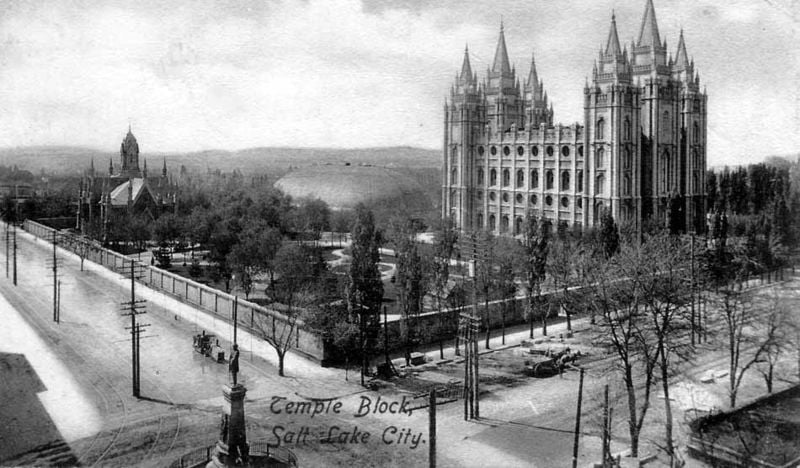
Recently my ward’s Gospel Doctrine class tackled the Book of Judges, which the LDS teacher’s manual handles in one tidy lesson, #19.
“Who was Deborah?” asked the teacher.
“A prophetess,” piped up our bishop’s wife, who is probably the best scriptorian in our whole congregation. She knows her Bible cold, and can recount the story of Deborah. Deborah received revelation from God and–what a departure!–actually implemented it, unlike most of the other characters in Judges. She ruled the tribes of Israel righteously for forty years. Oh, and did we mention she is called a female prophet?
“Yes!” said the teacher. He seemed genuinely pleased at the “strong woman” direction of our conversation. It was an excellent class. But as I sat there I wondered how that same lesson was being taught in other wards throughout the Church, because in this case, the lesson manual is more of a hindrance than a help.
“Barak is commanded to free Israel from Jabin,” the manual reads. “He
agrees if Deborah will go with him.” Well, sort of. The manual
conveniently omits the conduit of this revelation to Barak: Deborah, who
receives it as a direct commandment from God and then relays the
marching orders. A couple of pages later, the LDS manual does it again:
“What did the Lord command Barak to do?” And “on what condition was
Barak willing to go to battle against Sisera and his 900 chariots?”
The manual gives the impressions that 1) Barak had received his
commandment directly from God, and 2) he wanted his sidekick Deborah to
come along to the battle as moral support. The manual then reinforces #2
by lauding Deborah as a “righteous friend” and “true friend” to Barak.
Behind every good man, it seems, there is a good woman.
What the manual subtly does is strip Deborah of any power the Bible
gives her in her own right, by failing to mention her status as a
prophetess and her leadership role as a judge. In fact, at no point does
the manual even refer to her as a judge, let alone point out that she’s
the only wholly righteous one in the entire Book of Judges.
The Bible is clear that Deborah is not Barak’s sidekick, but his
boss. But the manual transforms her into a role that is more familiar
and comfortable for those unaccustomed to female leadership. She is
defined by one thing, and one thing only: her relationship with a man.
She is domesticated into a righteous and true friend who encourages
Barak to be a better man (“What qualities did she have that Barak may
not have had?” asks the manual).
I have no doubt that Deborah was an excellent and true friend to
Barak. She certainly gave him godly advice. But “friend” is just one of
the many roles God asked her to play. The quiet erasure of the most
public of those roles diminishes the Biblical witness.

